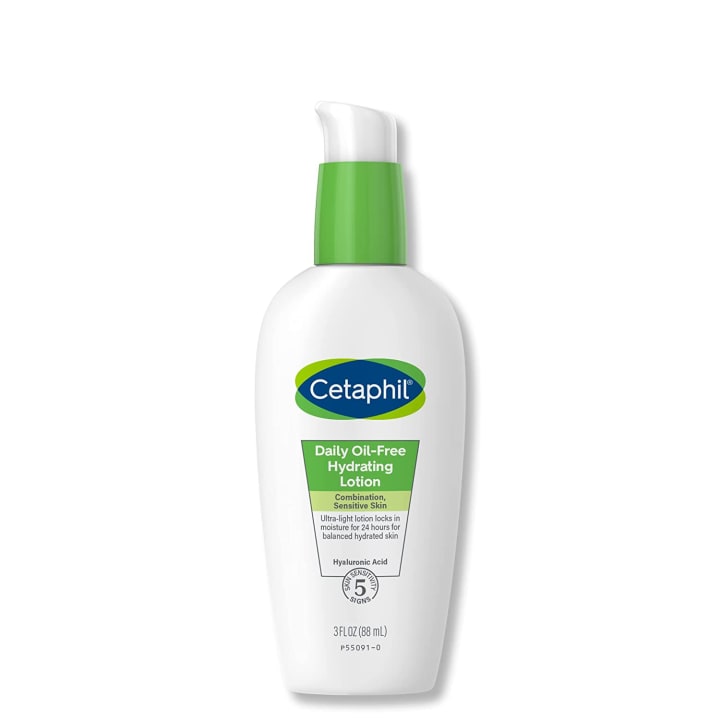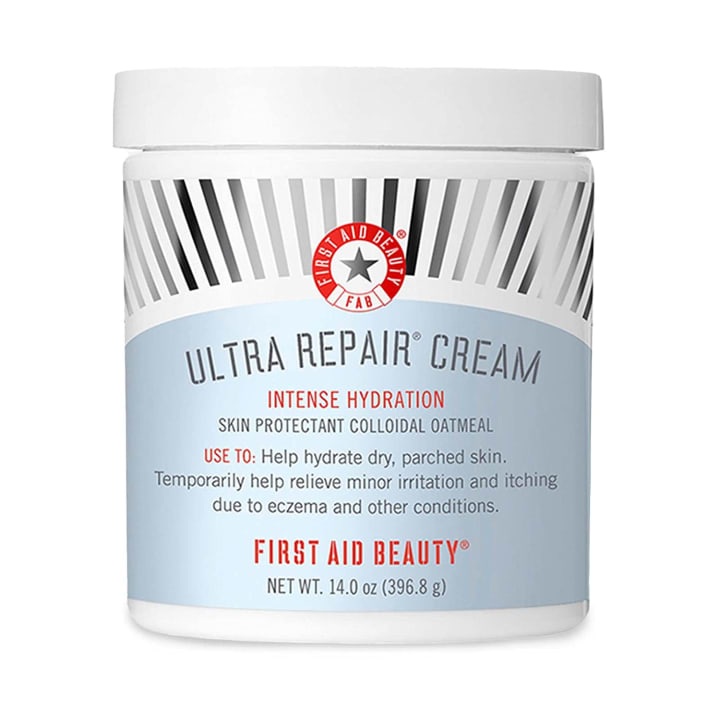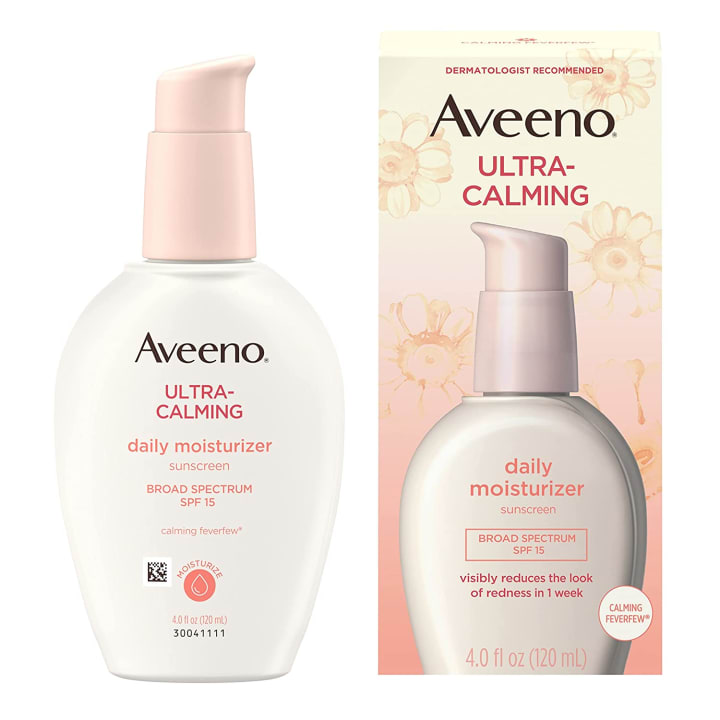Understanding Your Skin Type: How to Identify it and Choose Products Accordingly
"Unlock the Secret to Radiant Skin: A Comprehensive Guide to Identifying Your Skin Type and Choosing the Right Products for Your Unique Needs"

Welcome to my skincare blog, where we're here to help you unlock the secret to radiant skin. One of the most important aspects of a healthy, glowing complexion is understanding your skin type and choosing products accordingly. With so many different skincare products available, it can be overwhelming to know where to start, but identifying your skin type is the first step in creating a personalized routine that will deliver real results.
In this blog post, we'll take you through the process of identifying your skin type, from dry to oily and everything in between. We'll also explore how to choose the right products for your unique needs, so you can make informed decisions about what to include in your skincare routine. Whether you're a skincare novice or a seasoned pro, this guide is designed to provide you with the information you need to achieve the healthy, radiant skin you've always wanted. So, let's get started!
Understanding your skin type is a crucial first step in achieving healthy, radiant skin. Your skin type is determined by several factors, including genetics, lifestyle, and environmental factors. There are five main skin types: normal, dry, oily, combination, and sensitive.
Normal skin is balanced, with a healthy glow, and few visible pores or blemishes. It's not too dry or too oily and has a good amount of moisture. Dry skin lacks moisture and may appear flaky, rough, or itchy. Oily skin produces excess sebum and often has a shiny appearance with enlarged pores. Combination skin can be tricky to manage, as it has both oily and dry areas. Sensitive skin is easily irritated and can become red, itchy, or inflamed.
So, how can you determine your skin type? The easiest way is to observe your skin's appearance and texture after cleansing and without using any products. Normal skin will feel balanced and healthy. Dry skin may feel tight or rough, and you may notice flaking. Oily skin may feel greasy or have visible shine, especially around the T-zone. Combination skin will typically have an oily T-zone but feel dry or normal on other areas of the face. Sensitive skin may feel itchy, irritated, or look red after cleansing.
Once you've identified your skin type, you can choose products that are formulated to meet its specific needs. For example, if you have dry skin, you'll want to choose a moisturizer that's rich in hydrating ingredients such as hyaluronic acid or glycerin. Oily skin types may benefit from a lightweight, oil-free moisturizer that won't clog pores. Those with sensitive skin should avoid products with fragrances or harsh chemicals that can cause irritation.
It's important to note that your skin type may change over time due to various factors, such as aging or hormonal changes. As such, it's a good idea to periodically reassess your skin type and adjust your skincare routine accordingly.
In conclusion, understanding your skin type is the foundation for achieving healthy, radiant skin. By identifying your skin type and choosing products accordingly, you can create a personalized skincare routine that addresses your unique needs and concerns. With consistent care and attention, you can achieve the healthy, glowing complexion you've always wanted.
Sure, here are some examples of products that are formulated to meet the specific needs of different skin types:
Normal skin: A lightweight moisturizer, such as Cetaphil Daily Hydrating Lotion, which helps maintain the skin's natural moisture balance without feeling heavy or greasy.

Dry skin: A rich, nourishing moisturizer, like First Aid Beauty Ultra Repair Cream, which contains ingredients such as shea butter and colloidal oatmeal to soothe and hydrate dry, flaky skin.

Oily skin: A lightweight, oil-free moisturizer, such as Neutrogena Oil-Free Moisturizer, which provides hydration without clogging pores or contributing to excess oil production.

Combination skin: A moisturizer that's tailored to the specific needs of combination skin, like La Roche-Posay Effaclar Mat, which helps to mattify the T-zone while providing hydration to other areas of the face.

Sensitive skin: A gentle, fragrance-free moisturizer, like Aveeno Ultra-Calming Daily Moisturizer, which contains soothing ingredients like feverfew to help calm and protect sensitive skin.

Remember, there is no one-size-fits-all approach to skincare, and what works for one person may not work for another. It's important to experiment with different products and listen to your skin's needs to create a routine that's tailored to your unique needs and concerns.
hyaluronic acid or ceramides, which help to lock in moisture and prevent dryness
Use a gentle, creamy cleanser that won't further strip your skin of its natural oils
Incorporate a facial oil or serum into your routine to provide an extra boost of hydration
Consider using a humidifier in your home to help keep the air moist and prevent further dryness
For oily skin:
Look for lightweight, oil-free products that won't clog your pores or contribute to excess oil production
Use a gentle, foaming cleanser to help remove excess oil and impurities
Incorporate a weekly clay mask or other treatment to help absorb excess oil and keep your skin looking matte
Avoid over-cleansing or over-exfoliating, as this can actually trigger your skin to produce more oil
For combination skin:
Look for products that are specifically formulated for combination skin, which can help to balance your skin's oil production and hydration levels
Use a gentle, foaming cleanser to help remove excess oil and impurities from your T-zone, while using a gentler, creamier cleanser on other areas of your face
Consider using a toner or other balancing treatment to help regulate your skin's pH levels
Use targeted treatments on specific areas of your face as needed (for example, a mattifying product on your T-zone and a hydrating product on your cheeks)
For sensitive skin:
Look for products that are fragrance-free and formulated for sensitive skin
Use a gentle, non-foaming cleanser to avoid further irritating your skin
Avoid using harsh exfoliants or physical scrubs, which can be too abrasive for sensitive skin
Incorporate a calming, soothing product (such as aloe vera or chamomile) to help reduce inflammation and irritation
Other tips for a healthy skincare routine regardless of skin type include:
Consistency: Consistency is key when it comes to a skincare routine. Stick to a routine that works for you, and be patient – it can take several weeks or even months to see the full benefits of a new skincare product.
Patch test: Before using a new skincare product, it's important to patch test it on a small area of your skin first. This can help you avoid a potential allergic reaction or irritation.
Hydration: Drinking plenty of water is important for keeping your skin hydrated from the inside out. Aim to drink at least 8 glasses of water per day.
Diet: A healthy diet rich in vitamins and antioxidants can also benefit your skin. Try incorporating plenty of fruits, vegetables, and healthy fats (like avocado or salmon) into your diet.
Stress management: Stress can have a negative impact on your skin, so it's important to find ways to manage stress in your daily life. Consider incorporating relaxation techniques like meditation, yoga, or deep breathing exercises into your routine.
By understanding your skin type and choosing products that are tailored to its unique needs, as well as incorporating other healthy habits into your routine, you can help keep your skin looking and feeling its best.
Skincare is an important part of self-care and can help you feel confident and healthy. It's important to establish a skincare routine that works for you and your unique skin type. Your skin type can be influenced by a number of factors, including genetics, environment, and lifestyle.
To start developing a skincare routine, you should first identify your skin type. This can be done by examining your skin and taking note of any common characteristics. For example, oily skin may appear shiny or greasy, while dry skin may feel tight or rough. Combination skin may be oily in some areas (like the T-zone) and dry in others.
Once you've identified your skin type, you can begin to choose products that are specifically formulated for your skin's needs. This can include cleansers, toners, moisturizers, and targeted treatments like serums or masks. It's important to choose products that are gentle and won't further irritate your skin.
Consistency is also key when it comes to a skincare routine. Stick to a routine that works for you, and be patient – it can take several weeks or even months to see the full benefits of a new skincare product. Remember to patch test new products before using them on your entire face to avoid potential allergic reactions or irritation.
By understanding your skin type and choosing products that are tailored to its unique needs, as well as incorporating other healthy habits into your routine, you can help keep your skin looking and feeling its best.
In addition to identifying your skin type and choosing appropriate products, there are other important factors to consider when it comes to skincare. For example, the sun can have a damaging effect on your skin, so it's important to wear sunscreen every day, even if it's cloudy outside. Look for a broad-spectrum sunscreen with an SPF of at least 30 and apply it generously to all exposed skin.
Another important factor to consider is the use of exfoliants. Exfoliating your skin can help remove dead skin cells and unclog pores, but it's important to be gentle and not overdo it. Use a gentle exfoliating product (like a scrub or chemical exfoliant) no more than once or twice a week, and avoid using harsh physical scrubs that can cause micro-tears in your skin.
Finally, it's important to pay attention to your skin and adjust your routine as needed. If you notice any changes in your skin (like increased dryness or breakouts), consider adjusting your routine or seeking the advice of a dermatologist. Skincare is not one-size-fits-all, and it's important to find what works for you and your unique skin type.
In summary, establishing a healthy skincare routine is an important part of self-care. By identifying your skin type, choosing appropriate products, and incorporating healthy habits like hydration and stress management, you can help keep your skin looking and feeling its best. Remember to be patient and consistent, and don't hesitate to adjust your routine as needed.
In conclusion, understanding your skin type is crucial for achieving healthy and beautiful skin. By identifying your skin type, you can select skincare products that are tailored to your unique needs, and avoid using products that may be harmful or ineffective for your skin. Remember to pay attention to your skin's texture, oiliness, dryness, and sensitivity, and adjust your skincare routine accordingly. By taking care of your skin with the right products, you can maintain a healthy and youthful complexion. So go ahead, embrace your natural beauty, and treat your skin with the love and care it deserves.
About the Creator
Enjoyed the story? Support the Creator.
Subscribe for free to receive all their stories in your feed. You could also pledge your support or give them a one-off tip, letting them know you appreciate their work.





Comments
There are no comments for this story
Be the first to respond and start the conversation.